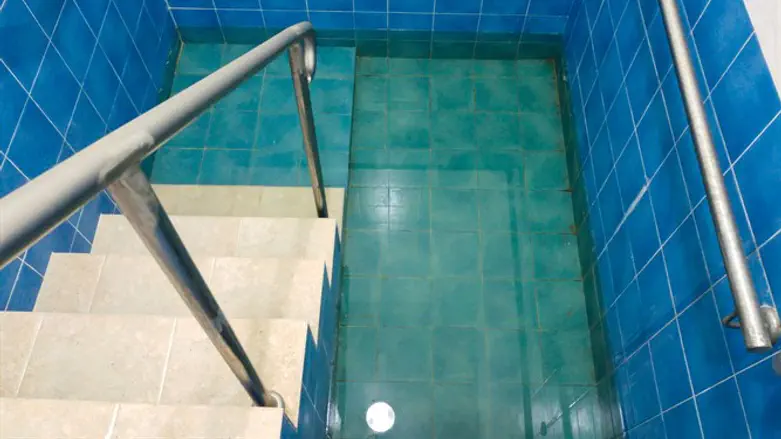
For the first time this year, American Jewish University’s (AJU) Community Mikveh in Los Angeles has opened its doors, in accordance with public health standards and guidelines. For years, AJU’s Mikveh has served as a space for the Jewish community that adds a sacred dimension to a lifecycle moment or for healing during times of sorrow or illness.
As the coronavirus pandemic halted much of what was considered normal life, AJU’s Mikveh closed its doors. Though the pandemic has uprooted communities’ normal flow of life, the opportunity to come back to the Mikveh is providing a haven for many.
A ritual pool one immerses in to purify oneself and to mark significant transitions in life, the Mikveh serves as a symbol of renewal. Though preparations for the Mikveh are now done at home, with a detailed checklist provided in advance, the experience is still made special by Emily Holtzman. A student at AJU’s Ziegler School of Rabbinic Studies, Holtzman helps lead the in-person operation at the Mikveh.
Holtzman ensures that the ritual remains sacred. For conversions, she recites three blessings—the first about the person’s journey that brought them to Judaism; the second reflecting on their first experiences with Judaism; and lastly, the culmination of the learning process and what their future will be as a new member of the Jewish community.
“There is something so wonderful and unique about bringing someone into the covenant in this time and being a witness on that journey,” says Holtzman. “Seeing their dedication to joining the Jewish community is really beautiful.”
Katie London, the Manager of the Mikveh, reflects on the range of people visiting the Mikveh, now that it has reopened. She shares, “we have a lot of brides and grooms and we also are starting to see people who have experienced trauma over the last year, and who are finding a space at the Mikveh—they find a moment for themselves.”
As the only pluralistic mikveh in the Pacific Southwest, AJU’s Mikveh welcome Jews of all denominations, from the Bay Area to Mexico. London explains that the Mikveh has seven steps to enter and exit the ritual pool, noting that in the Jewish tradition, “seven signifies creation and transformation. When a person walks out of the Mikveh, they are not a different person, but there is something about them that is changed—they're ready to move forward.”
The Mikveh “offers a sense of calm and a time to be able to reflect on, unpack, and let go of whatever it is one needs to let go of and take in whatever one needs to take in,” says London.
In addition to following city and state guidelines regarding COVID-19, London and her colleagues consulted an epidemiologist, who provided guidance on reopening the Mikveh safely.
According to their website, the AJU Community Mikveh’s ethos is deeply rooted in the Jewish values of kavod and hachnasat orchim, respect and the warm welcoming of visitors of all walks of life. They are dedicated to making this ancient ritual accessible and meaningful to all Jews.